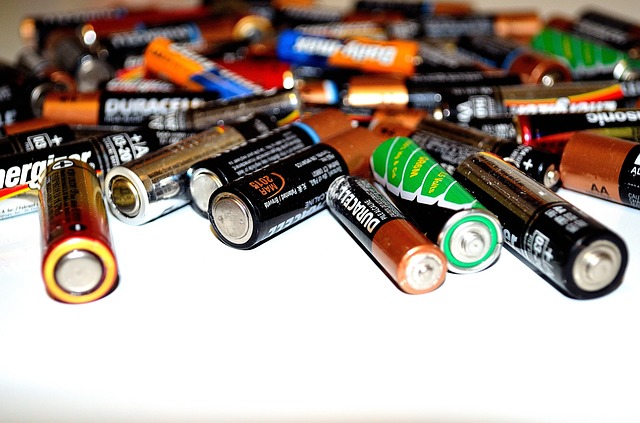So many things in modern life either plug in or run on batteries. Sometimes they are the easy-to-see kind, like button batteries or AA batteries. Other times they are the rechargeable kind we have in cell phones, laptops, or cars. Most batteries contain toxic chemicals, such as cadmium, lead, lithium, and sulfuric acid. Batteries that end up in a landfill can leak these pollutants into the earth, groundwater, and potentially make it’s way into the food chain. Batteries can also overheat and start a fire. Because of those things, recycling batteries is an important part of environmental responsibility. It’s also illegal to throw batteries out with standard garbage in many parts of the U.S.
Just like recycling other electronics, there is a benefit to recycling batteries as well. The more we can recycle things like nickel, lithium, and cobalt, the less of that material that we need to mine from the earth.
Many Americans who live near a battery collection site will utilize that service. One battery recycler says they saw a big increase in battery recycling during the heart of the pandemic; in 2021 they collected 8.1 million pounds of batteries. For consumers and businesses, recycling batteries along with other electronics is not only a great way to reduce carbon footprint, but it’s often the law.
One thing that’s important for everyone to understand is that all batteries are recyclable.
Car batteries, rechargeable batteries (including AA, 9-volt, cell phone batteries, etc), and even button cell watch batteries contain heavy metals and other toxic chemicals. These are the types of batteries often referred to by law when it comes to recycling. Other batteries, like disposable alkaline AA batteries aren’t quite as dangerous or as regulated. Mercury used to be a typical ingredient in those, but manufacturers essentially stopped using the hazardous element in the 1990s.
Today’s disposable batteries are relatively benign, but that doesn’t mean you should just throw them away. It’s easy to get them confused with more sensitive batteries—and even alkaline batteries have recoverable materials.
Consumers have a few options to responsibly recycle batteries. Your local municipality will probably have options, but Earth911 and Call2Recycle have tools to help locate recycling drop-off points.
Businesses often have even more options. For small batches of only batteries, Earth911 and Call2Recycle are a great option. If your batteries are just a part of a larger quantity of electronics to be recycled, contact your recycling vendor for a quote. Back Thru The Future accepts large quantities of batteries, computers, printers, cables, monitors, and other electronics.

